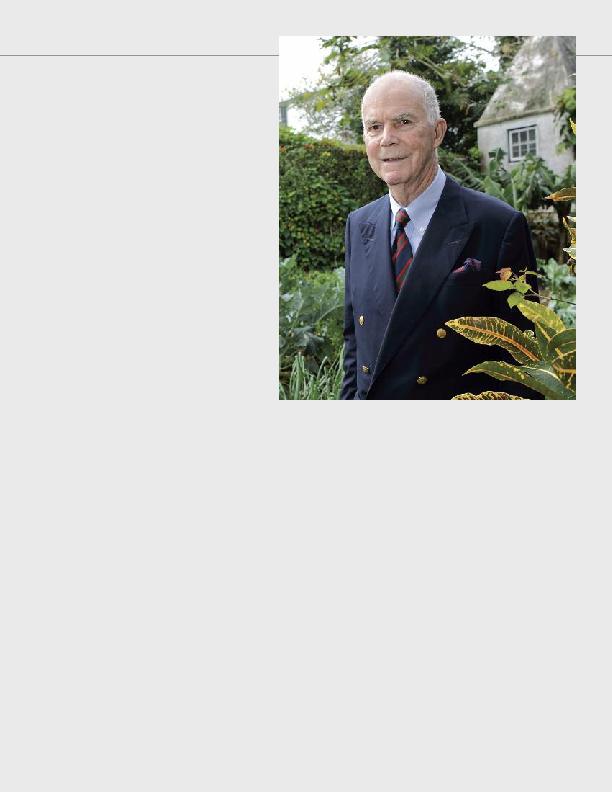
Darling,
yacht as a teenager in the 1940s, he did so for no
other reason than the fact "it was there to cross."
replica of the vessel which today has pride of place
in the hallway of his Warwick home. "I was sick as
a dog, and the journey took five weeks on rough
seas, but it was amazing. I remember I flew back to
Bermuda by plane with nothing with me but a box
of English raspberries for my mother."
1928, he is the middle of three siblings. Born in the
Woodlands building on campus in 1930, he has
strong connections to the School. "Our family was
living at Woodlands, which was typically the head-
master's residence, because the Head at the time,
Henry Cox, already had a house in Devonshire," he
explains. "So he rented it to us until we moved in
1931 when Bobbie Booker became Headmaster."
thing Darling believes raised education standards.
"I was no longer at the top of the class," he smiles.
As the war began to wind down in 1944, many of
those young people began returning to England,
hitching rides aboard Royal Navy vessels. Darling
joined one such journey when he left for English
boarding school at age 13--a crossing which took
almost three weeks. Arriving at the Charterhouse
school in Godalming, Surrey, however, he was
greeted by an unimpressed housemaster.
passed your Common Entrance Exam!' I was
scared, but explained I had just crossed the Atlantic
on a British warship and I couldn't just go home.
So he made me take the exam right then and there.
I was so upset--but I still passed."
1947. He graduated from Charterhouse two years
later and attended Cambridge university ( Jesus
College) to study Agriculture. He returned to
Bermuda with his degree, but never intended to
tural expert in Africa," he says. "But my father
became very sick, so I was catapulted into working
at Bluck's [china store], which my father owned,
and where I remained for the rest of my life."
(BMA) to form the Bermuda Regiment. He was
Commanding Officer from 197074, a troubled
decade when, in 1973, Governor Sir Richard
Sharples was assassinated and his aide-de-camp,
Captain Hugh Sayers, was murdered.
against," he explains. "The Governor's ADC had
been here at the house for supper two days before
he was murdered, playing with our child. A lovely
thank-you letter arrived from him two or three
days after he was killed. I will never forget that."
Board. He was founding director of the Bermuda
College and twice led the Bermuda National Trust.
the Atlantic
on a British
warship...
I couldn't
just go
home'
A